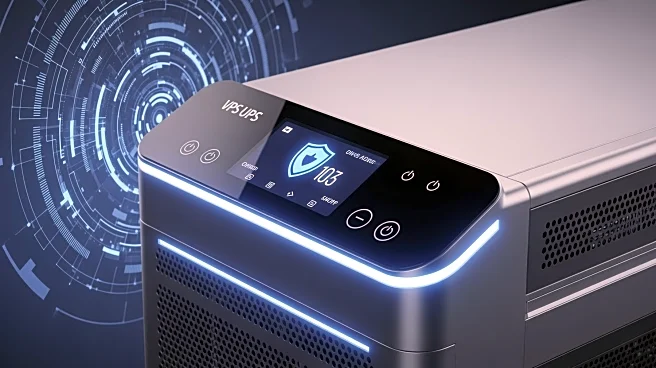What's Happening?
Phoenix Contact has released patches for several vulnerabilities affecting its QUINT4 uninterruptible power supply (UPS) products. These vulnerabilities, identified by cybersecurity firm CyberDanube, can be exploited by remote, unauthenticated attackers
to perform denial-of-service (DoS) attacks and obtain login credentials. The vulnerabilities include CVE-2025-41703, CVE-2025-41704, CVE-2025-41706, and CVE-2025-41707, which can lead to permanent DoS conditions, preventing remote recovery. CVE-2025-41703 allows an attacker to use a Modbus command to turn off the output of a UPS device, described as a 'dangerous function exploitation' leading to 'denial of power service'. Another vulnerability, CVE-2025-41705, involves password information leakage, allowing attackers in a man-in-the-middle position to intercept Webfrontend passwords. Phoenix Contact advises using affected devices in isolated industrial networks and protecting them with a firewall.
Why It's Important?
The vulnerabilities in Phoenix Contact's UPS devices pose significant risks to industrial operations, potentially leading to service disruptions and unauthorized access to sensitive information. These devices are critical for maintaining power supply continuity in industrial settings, and their compromise could result in operational downtime and financial losses. The ability to exploit these vulnerabilities remotely underscores the importance of robust cybersecurity measures in industrial environments. Organizations using these devices must ensure they are not exposed to the internet and are protected by firewalls to mitigate potential attacks. The patches provided by Phoenix Contact are crucial for safeguarding against these threats and maintaining the integrity of industrial operations.
What's Next?
Organizations using Phoenix Contact's UPS devices should promptly apply the patches provided to secure their systems against the identified vulnerabilities. They should also review their network configurations to ensure these devices are used in isolated environments and protected by firewalls. Cybersecurity professionals may continue to monitor for any further vulnerabilities and work on additional security measures to protect industrial networks. The ongoing dialogue between cybersecurity firms and manufacturers like Phoenix Contact is essential for identifying and addressing potential security threats in industrial systems.
Beyond the Headlines
The discovery of these vulnerabilities highlights the growing importance of cybersecurity in industrial settings, where the integration of IT and operational technology (OT) systems can create new attack vectors. As industrial systems become more interconnected, the need for comprehensive security strategies that address both IT and OT environments becomes increasingly critical. This development may prompt further investment in cybersecurity solutions tailored to industrial applications, as well as increased collaboration between cybersecurity experts and industrial equipment manufacturers.

















